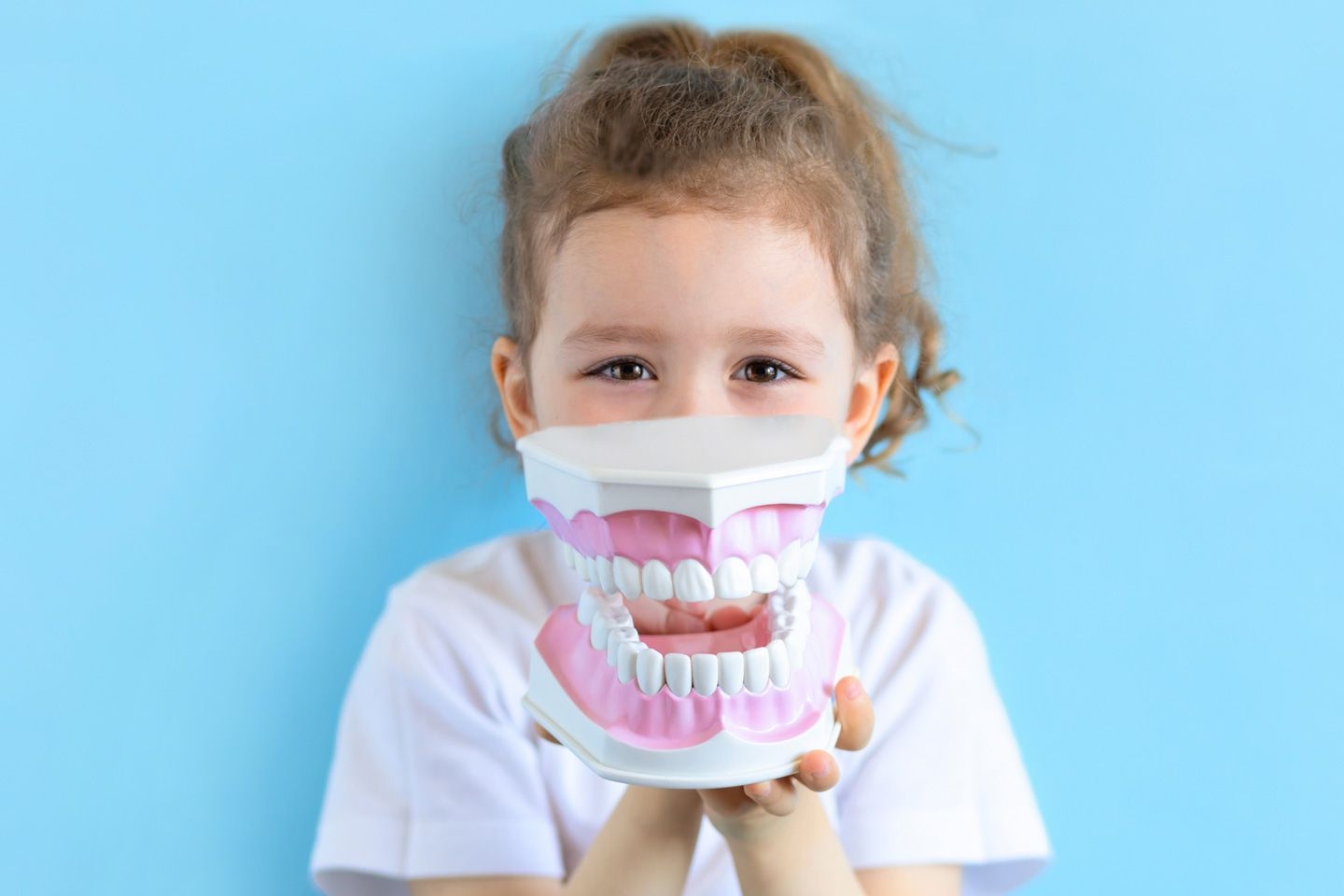
When a patient has a single missing tooth or needs only one tooth extracted, there are multiple replacement options. For many patients, a partial denture is one of the leading options. Partial dentures for one missing tooth are removable dental appliances that hook onto a patient's natural teeth and contain a prosthetic tooth mounted in pink resin to match the patient's gums.
To schedule your appointment, contact our team at PHONE_NUMBER today.
When a tooth is missing, the other teeth move and fill the space. They do not do this evenly, meaning this movement makes things worse. It also becomes more difficult to bite or chew with a missing tooth.
Depending on the patient’s needs, replacing a missing tooth with a prosthetic can be a good way to help keep the entire mouth healthy. Having a full set of teeth, natural or not, also improves a person's smile. Partial removable dentures is a tooth-replacement option that can be used for only one missing tooth, in place of an implant or prosthetic.
As explained by WebMD, a removable partial denture is contoured to fit snugly into the patient's mouth. To get this custom fit, Desert Bloom Dentistry takes impressions of the mouth before having the denture made. The finished product consists of pink resin and one or more prosthetic teeth.
Although the partial denture may feel tight and uncomfortable at first, most patients get used to it in a matter of weeks. A partial denture can help with chewing but should be removed for sleep. It is important to keep the apparatus scrupulously clean to avoid problems with bacteria.
Using a partial denture to fill a space left by a missing tooth has its advantages and disadvantages. Always consider the advice of your dental professional when deciding whether or not to replace a tooth. Depending on the patient's oral health, the ability to maintain dental hygiene, and other circumstances, a partial denture may or may not be the right option.
A partial denture is a quick, common solution for replacing a tooth, but there are alternatives. The treatment chosen depends on the patient's situation and needs. When a replacement tooth is required, several choices are available:
Dental implants are part of a long-term solution for missing teeth. A dentist can place implants in a patient's jaw and attach false teeth to them. They are incredibly durable and, according to the American Academy of Implant Dentistry, may help prevent bone loss around a tooth extraction. However, implant placement is more invasive than getting a partial denture. Depending on the type of implant, it may be several months before the final installation of the prosthetic tooth.
A dental bridge consists of a group of crowns that attach to healthy teeth on either side of the gap. It is necessary to reduce the healthy teeth that will support a bridge to allow crowns to go over them. The three or more crowns that make up the dental bridge are a single piece with no way to floss between them. Additionally, extra care is needed to clean under the pontic, or part that fills the gap.
Implant-supported bridges are an option for those without the necessary natural teeth. Similarly, implant-supported dentures, which can replace the entire upper arch, lower arch, or both, are also an option for some people. Implants last a long time with proper care, but they do sometimes fail. Because dental implants fuse to the jawbone and require good overall health to ensure healing, not every patient is a candidate.
Partial dentures are often more affordable than implants or fixed bridges. However, because they are not as durable as other prosthetic teeth, there may be ongoing expenses. Cost alone should not be the determining factor when considering tooth replacement options. Consult with Desert Bloom Dentistry to determine the right choice for you.
When a tooth is missing, other teeth begin to shift inside the mouth. This shifting affects the bite and, according to the U.K.-based Oral Health Foundation, may also contribute to tooth decay. Another symptom of missing teeth is bone loss. Fortunately, both these side effects may be able to be minimized depending on the type of replacement tooth.
Each patient's oral health, medical history, and overall physical condition play a role in determining the option for replacing missing teeth. Other important factors include the position of the missing tooth, affordability, and insurance coverage. Consult with a qualified professional before making this decision.
Partial dentures tend to cost less than implants and bridges. They also generally take less time for design, creation, and placement. They are easy to insert, remove, and clean.
Dental bridges tend to be strong and durable. Whether they are a good option depends on the condition of the surrounding teeth and the patient's overall oral health. When chosen to replace missing teeth, dental bridges can last many years with proper care.
They are the same thing. A partial denture is also often referred to as a partial. Less frequently, it is called a plate or a dental plate.
Call us at PHONE_NUMBER to schedule an appointment!